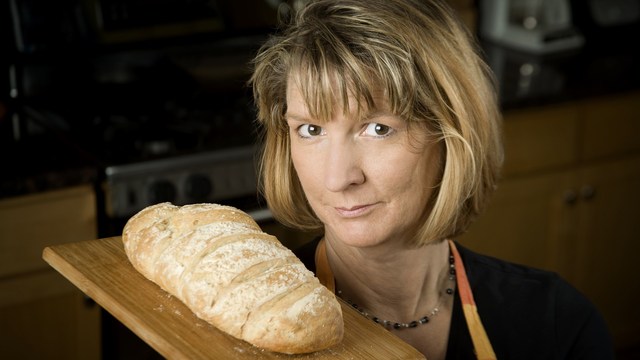 Scott Griessel-Creatista/PhotoSpin
Scott Griessel-Creatista/PhotoSpin
The term “gluten-free” seems like the latest buzzword with everyone from Hollywood stars to popular bloggers supporting the elimination of this controversial component of several grains.
While many chalk it up to a passing fad, those who have gone gluten-free and experienced its benefits will tell you firsthand how it has changed their life for the better.
Whether someone has diagnosed celiac disease, a gluten allergy, non-celiac gluten sensitivity, or other health issues such as autoimmune problems, going gluten-free does not have to be difficult.
Here are five tips to making the transition easier.
1) Understand why you are eliminating gluten from your diet.
Testing for celiac requires that you have been eating gluten regularly, whereas non-celiac gluten sensitivity does not necessarily show up on any tests, However people with either condition report symptom improvement with elimination of gluten and return of the symptom(s) upon its reintroduction.
Additionally those with autoimmune conditions such as Hashimoto’s disease may find that eliminating gluten helps alleviate symptoms. Knowing why gluten is causing problems is motivating.
2) Do your research, read labels and talk to people.
Going gluten-free is a major lifestyle change for many and their families. Therefore it is helpful to have websites for easy reference, support groups to ask questions, cookbooks for recipe ideas, and research sites such as the University of Chicago Celiac Disease Center or the National Foundation for Celiac Awareness.
The more you know, the easier it will be to shop in grocery stores, eat out at restaurants, go to potlucks and travel. It may seem overwhelming at first, however learning everything you can be critical to your health.
3) You have to give it time.
Giving up gluten for a week and declaring that it's too difficult, or that you didn’t notice any improvement is not fair to your health. The damage done in celiac disease can take six months or more on a gluten-free diet to repair, and even then it may never fully heal.
Some people believe going “gluten-lite” where they reduce but do not eliminate this element from their diet will help them achieve their goals but this is wishful thinking. A true 100% elimination diet should last 4-8 weeks at a minimum.
4) Enlist the help of your family and friends.
Being gluten-free is not shameful and should not carry a stigma that you are following a trend. You are doing this for your health and it is important that those around you support you and do not discount or sabotage your efforts.
As gluten-free is more mainstream now, shopping at the grocery stores, eating out, and cooking with different grains (or grain-free) are all much easier than even five years ago. Many gluten-free foods are quite tasty (although, to be strictly honest, many are not) therefore with some trial-and-error the transition should gradually become smoother.
5) Remember that you will not starve.
All protein, nuts, seeds, dairy, vegetables and fruit are gluten-free naturally unless it is added to the dish. Plus there are gluten-free options for most everything now including soy sauce (wheat is the first ingredient in regular soy sauces), salad dressings, canned soups and sauces.
You can even buy cake or brownie mix that is gluten-free as well as a plethora of other snacks, crackers, cereals, desserts, noodles and more. Wine and coffee are also gluten-free.
Before trying this diet on your own, talk with your health care provider about appropriate testing, especially if you suspect that you have celiac disease.
Sources:
1) Balesteri, W. Could this Patient have ‘Non Celiac Gluten Sensitivity?’ Web. 2 June, 2014. Retrieved from
http://www.medscape.com/viewarticle/778320
2) Brookes, L., & Murray, J. Diagnosing and Managing Celiac Disease in Primary Care: Application of Current Guidelines. Web. 2 June, 2014. Retrieved from
http://www.medscape.com/viewarticle/820397
3) Lundin, K. & Sollid, L. Advances in Coeliac Disease. Web. 2 June, 2014. Retrieved from
http://www.medscape.com/viewarticle/821168
Retrieved June 4, 2014
by Michele Blacksberg RN
Edited by Jody Smith






Add a CommentComments
There are no comments yet. Be the first one and get the conversation started!